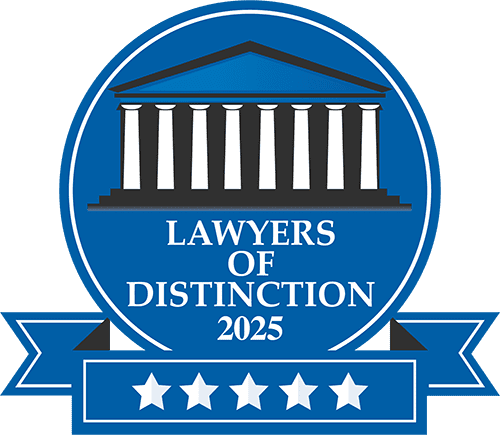Embarking on a legal career is an exciting yet demanding journey. As a new lawyer, you are likely to encounter numerous challenges that will test your resilience, adaptability, and commitment to the profession. At Lawyers of Distinction (LOD), we have seen countless legal professionals navigate this path successfully, and we are here to offer our expertise to help you overcome common hurdles and build a thriving legal career.
Mastering The Transition From Law School To Practice
The transition from law school to actual legal practice can be daunting. In law school, you focus on theoretical knowledge and case law, whereas practice requires applying that professional knowledge to real-world scenarios. Here are some tips to ease this transition:
Seek Mentorship: Find experienced lawyers who can provide guidance, support, and insights into the practical aspects of law. A mentor can help you navigate the complexities of your early career, offer invaluable advice on professional conduct, and ensure you act ethically. Engaging with professional associations can also connect you with other professionals who share your interests and provide opportunities for building relationships that support your professional journey.
Embrace Continuous Learning: The legal field is ever-evolving. Stay updated with the latest legal developments, attend training programs and workshops, and pursue continuing legal education (CLE) courses to keep your skills sharp. Engaging in these educational activities can help you acquire new skills and stay informed about ethical principles and professional ethics. Participating in research and remaining active in professional associations can also enhance your understanding of the field and introduce you to innovative practices and other professional groups.
Develop Practical Skills: Focus on honing skills such as legal writing, client communication, negotiation, and courtroom demeanor. These skills are crucial for effective practice and often differ from academic training. Practical skills development is of central importance in professional functions. Utilize your professional judgement to adapt to various situations, ensuring you maintain high standards of record keeping and ethical behavior, which are essential in avoiding unethical conduct.
Building A Professional Network
A strong professional network is essential for career growth in the legal field. Networking can lead to new job opportunities, collaborations, and referrals. Here’s how to build and maintain your network:
Attend Industry Events: Participate in legal conferences, seminars, and bar association meetings. These events provide opportunities to meet and connect with fellow professionals, share common interests, and discover new ideas. By attending these events, you can learn about different practices and companies, and explore services offered by other professional groups.
Join Professional Organizations: Becoming a member of organizations like the American Bar Association (ABA) or local bar associations can open doors to networking and career development resources. Professional groups offer a wider variety of networking opportunities and access to a wealth of professional knowledge. Active involvement in these organizations helps you create meaningful relationships with members who can support your professional development and introduce you to new opportunities.
Leverage Social Media: Use platforms like LinkedIn to connect with peers, share your achievements, and stay informed about industry trends. Engage in discussions and contribute to online legal communities to build relationships and promote your personal commitment to professional development. Social media can help you reach a larger audience, including other professionals and companies interested in your expertise, facilitating the creation of a robust professional network.
Managing Work-Life Balance
The legal profession is known for its demanding nature, often leading to long hours and high stress. Maintaining a healthy work-life balance is crucial to avoid burnout and ensure long-term success. Consider the following strategies:
Set Boundaries: Establish clear boundaries between work and personal life. Communicate your availability to clients and colleagues to manage expectations and maintain professional conduct. Setting boundaries helps ensure that you allocate time for personal activities and self-care, which are vital for maintaining mental health and productivity.
Prioritize Self-Care: Take time for activities that rejuvenate you, such as exercise, hobbies, and spending time with loved ones. Prioritizing self-care enhances productivity and well-being, which is essential for mental health. Engaging in these activities not only benefits you personally but also helps you stay engaged and effective in your professional functions.
Seek Support: If you feel overwhelmed, don’t hesitate to seek support from peers, mentors, or professional counselors. Talking about your challenges can provide relief and solutions, ensuring you stay engaged and motivated in your workplace. Support from professional associations and other professionals can also offer valuable perspectives and strategies for managing work-life balance effectively.
Navigating Ethical Dilemmas
Ethical dilemmas are an inherent part of legal practice. Upholding ethical standards is not only a professional obligation but also crucial for building a reputable career. Here’s how to navigate these challenges:
Know the Rules: Familiarize yourself with the ethical guidelines and codes of conduct governing your jurisdiction. Understanding these rules is fundamental to ethical practice and professional judgement. Regularly reviewing these guidelines helps you stay informed about ethical issues and ensures your practice aligns with the highest standards of integrity.
Seek Guidance: When faced with an ethical dilemma, consult with senior colleagues, mentors, or ethics committees. Seeking advice can provide clarity and help you make informed decisions when conflicts occur. Engaging with professional associations can also provide access to resources and support networks that assist in navigating ethical challenges.
Prioritize Integrity: Always prioritize honesty, integrity, and fairness in your practice. Building a reputation for ethical behavior will earn you respect and trust from clients and peers, making you a valuable asset to your organization. Avoiding unethical conduct and maintaining rigorous record keeping practices are essential for upholding your professional reputation and ensuring long-term success.
Enhancing Client Relationships
Building and maintaining strong client relationships is vital for a successful legal career. Satisfied clients are more likely to refer you to others and provide repeat business. Here’s how to enhance client relationships:
Communicate Effectively: Keep clients informed about their cases and respond promptly to their inquiries. Clear and regular communication builds trust and confidence, ensuring informed consent. Effective communication also helps in understanding client needs better, allowing you to tailor your services to meet their expectations.
Understand Client Needs: Take the time to understand your clients’ goals and concerns. Tailoring your approach to meet their specific needs demonstrates dedication and professionalism, which benefits both the client and your practice. Understanding clients on a personal level helps create a strong bond and ensures they feel valued and respected.
Exceed Expectations: Strive to exceed client expectations by delivering high-quality work and achieving favorable outcomes. Going the extra mile can turn clients into long-term advocates for your practice, creating future opportunities. Building relationships with clients through exceptional service fosters loyalty and can lead to additional business and referrals.
Developing A Niche Expertise
While a broad understanding of the law is essential, developing expertise in a specific niche can set you apart from other lawyers. Specializing in a particular area of law can make you the go-to expert in that field. Consider the following steps:
Identify Your Passion: Choose a niche that aligns with your interests and strengths. Passion for your chosen field will drive your commitment and success, and guide your development goals. Specializing in an area that excites you will also keep you motivated to stay updated with the latest research and developments in that field.
Gain Experience: Seek opportunities to work on cases or projects within your chosen niche. Practical experience is invaluable for developing expertise and professional knowledge. Engaging in various forms of legal practice within your niche will help you build a comprehensive understanding and establish your reputation as an expert.
Market Your Expertise: Promote your niche expertise through speaking engagements, publishing articles, and participating in industry forums. Establishing yourself as an authority in your field enhances your professional profile and can lead to new opportunities in policy development and other forms of professional advancement. By sharing your knowledge and engaging with other professionals, you create a network that recognizes and values your specialized skills.
Conclusion
Navigating the challenges of a legal career requires a combination of resilience, continuous learning, ethical integrity, and strong interpersonal skills. By seeking mentorship, building a robust professional network, maintaining work-life balance, upholding ethical standards, nurturing client relationships, and developing niche expertise, you can overcome common hurdles and build a successful legal career. At Lawyers of Distinction (LOD), we are committed to supporting new lawyers on their journey and providing the resources and insights needed for long-term success. Remember, every challenge is an opportunity for growth, and with determination and the right strategies, you can achieve your professional aspirations.






